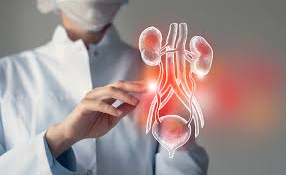In recent years, kidney health has emerged as a pressing concern globally, with a surge in kidney-related ailments posing significant challenges to public health systems. From chronic kidney disease (CKD) to kidney stones and infections, the spectrum of kidney disorders demands attention and proactive measures. This article delves into the escalating problems surrounding kidney health and explores strategies to address them.
CKD has reached epidemic proportions, affecting millions worldwide. Risk factors such as hypertension, diabetes, and obesity contribute to its prevalence, necessitating early detection and management. The incidence of kidney stones is on the rise, causing excruciating pain and complications. Dietary habits, dehydration, and metabolic disorders play pivotal roles in stone formation, highlighting the importance of preventive measures. Acute Kidney Injury often triggered by severe infections or medication toxicity, poses a grave threat, especially in hospitalized patients. Timely intervention is crucial to prevent irreversible renal damage. End-Stage Renal Disease (ESRD) imposes a heavy burden on healthcare systems, requiring dialysis or transplantation for survival. Limited access to renal replacement therapy exacerbates disparities in care, emphasizing the need for equitable healthcare delivery.
The escalating burden of kidney diseases demands a multifaceted approach encompassing prevention, early intervention, and equitable access to care. By addressing modifiable risk factors, promoting healthy lifestyles, and fostering innovation in healthcare delivery, we can navigate the rising tide of kidney-related problems and safeguard public health for generations to come.
Every year, the world comes together to observe World Kidney Day. This global initiative aims to raise awareness about the importance of kidney health, highlight the challenges faced by those with kidney diseases, and advocate for access to proper care and prevention strategies. With kidney diseases affecting millions of people worldwide, the significance of this day cannot be overstated.
World Kidney Day was first observed in 2006, as a joint initiative of the International Society of Nephrology (ISN) and the International Federation of Kidney Foundations (IFKF). Since then, it has grown into a global campaign involving healthcare professionals, policymakers, patient groups, and the general public. The overarching goal is to reduce the prevalence of kidney diseases and their associated complications through education, advocacy, and early detection.
The kidneys are vital organs responsible for filtering waste products from the blood, regulating blood pressure, producing hormones, and maintaining electrolyte balance. When kidneys malfunction or fail, waste products and fluids can build up in the body, leading to serious health complications such as chronic kidney disease (CKD), kidney stones, infections, and eventually, kidney failure.Poor kidney health is often linked to lifestyle factors such as high blood pressure, diabetes, obesity, and smoking. Additionally, certain genetic and environmental factors can increase the risk of developing kidney diseases. Given the crucial role kidneys play in overall health, preserving their function is essential for leading a long and healthy life.
World Kidney Day serves as a powerful reminder of the importance of kidney health and the need for concerted efforts to prevent and manage kidney diseases. By raising awareness, promoting early detection, and advocating for equitable access to care, we can make significant strides in reducing the global burden of kidney-related illnesses. As individuals, communities, and nations come together to support this cause, we move closer to a world where everyone can enjoy the benefits of healthy kidneys and a better quality of life.
Addressing the Main Reasons behind Increased Kidney Diseases and Prevention Strategies:
Despite advancements in medical science, the prevalence of kidney diseases continues to rise globally. Several factors contribute to this concerning trend, and understanding these root causes is essential for effective prevention. Here are some of the main reasons behind the increased incidence of kidney diseases and strategies for prevention:
Diabetes and Hypertension
Diabetes and hypertension (high blood pressure) are two leading causes of kidney diseases, including CKD and kidney failure. Uncontrolled diabetes damages the blood vessels in the kidneys, impairing their ability to filter waste effectively. Managing diabetes and hypertension through lifestyle modifications (such as a healthy diet, regular exercise, and weight management) and medication adherence is crucial. Regular monitoring of blood sugar levels and blood pressure, as well as medication adjustments as recommended by healthcare providers, can help prevent or delay kidney complications.
Obesity
Obesity is a significant risk factor for kidney diseases, as it contributes to the development of diabetes, hypertension, and other metabolic disorders. Excess body weight can also directly strain the kidneys and lead to kidney stones.Adopting a healthy lifestyle that includes a balanced diet rich in fruits, vegetables, whole grains, and lean proteins, along with regular physical activity, can help prevent obesity and reduce the risk of kidney diseases. Weight loss, if necessary, should be achieved gradually and under the guidance of healthcare professionals.
Smoking and Alcohol Consumption
Smoking and excessive alcohol consumption are detrimental to kidney health. Smoking reduces blood flow to the kidneys and can worsen existing kidney conditions. Alcohol abuse can lead to dehydration, electrolyte imbalances, and liver damage, all of which can harm the kidneys.Quitting smoking and limiting alcohol intake are essential steps in protecting kidney health. Smoking cessation programs, counselling, and support groups can help individuals overcome nicotine addiction. Moderating alcohol consumption and staying hydrated by drinking plenty of water are also recommended.
Poor Dietary Choices
Diets high in sodium, processed foods, saturated fats, and added sugars can increase the risk of kidney diseases, including kidney stones and CKD. Excessive salt intake can raise blood pressure and strain the kidneys, while high-sugar diets contribute to obesity and diabetes.Adopting a kidney-friendly diet that emphasizes whole foods, including fruits, vegetables, whole grains, and lean proteins, while limiting sodium, sugar, and processed foods, can promote kidney health. Monitoring portion sizes and reading food labels for hidden sources of salt and sugar are important habits to develop.
Medication Misuse
Certain medications, when used improperly or overused, can harm the kidneys. Nonsteroidal anti-inflammatory drugs (NSAIDs), such as ibuprofen and naproxen, can cause kidney damage, especially when taken in high doses or over a prolonged period. Always follow healthcare providers’ instructions when taking medications and avoid self-medicating with over-the-counter drugs without professional guidance. Inform healthcare providers about any existing kidney conditions or concerns before starting new medications.
Genetic and Environmental Factors
Genetic predisposition and environmental factors, such as pollution, exposure to toxins, and certain occupations involving hazardous chemicals, can increase the risk of kidney diseases. While genetic factors may be beyond control, minimizing exposure to environmental toxins and pollutants through proper safety measures and workplace regulations can help reduce the risk of kidney diseases. Regular health screenings and early detection of kidney problems are also important for timely intervention and management.
By addressing these underlying reasons behind the increased prevalence of kidney diseases and implementing appropriate prevention strategies, individuals can take proactive steps to protect their kidney health and reduce the burden of kidney-related illnesses worldwide. Collaboration among healthcare professionals, policymakers, communities, and individuals is essential in promoting kidney health and preventing kidney diseases effectively.
Global and Regional Statistics on Kidney Diseases
Kidney diseases pose a significant public health challenge worldwide, with millions of people affected by various kidney-related conditions. Here are some key statistics highlighting the global and regional burden of kidney diseases:
- Chronic Kidney Disease (CKD): CKD affects approximately 10% of the global population, with an estimated 850 million people living with the condition.The prevalence of CKD varies by region, with higher rates reported in low- and middle-income countries, particularly in Southeast Asia, Africa, and the Western Pacific.
- End-Stage Kidney Disease (ESKD): ESKD, the final stage of CKD, requires renal replacement therapy such as dialysis or kidney transplantation for survival. Globally, over 2.5 million people receive dialysis or kidney transplantation for ESKD, with the number expected to rise due to population aging and the increasing prevalence of risk factors such as diabetes and hypertension.
- Diabetes and Hypertension: Diabetes and hypertension are leading causes of CKD and ESKD worldwide. Approximately 40% of people with diabetes develop diabetic kidney disease, a leading cause of kidney failure.Hypertension contributes to kidney damage by causing sustained high blood pressure, which can lead to kidney failure over time.
Kidney Disease Statistics in India
India, with its large and diverse population, faces a significant burden of kidney diseases, exacerbated by socioeconomic factors, limited access to healthcare, and a rising prevalence of risk factors such as diabetes and hypertension. Here are some statistics specific to kidney diseases in India:
- Chronic Kidney Disease: CKD is a growing health concern in India, affecting an estimated 8-17% of the adult population.The prevalence of CKD is higher in urban areas compared to rural areas, primarily due to lifestyle factors such as unhealthy diets, sedentary lifestyles, and higher rates of diabetes and hypertension.
- End-Stage Kidney Disease: India has one of the highest burdens of ESKD globally, with over 200,000 new cases reported annually. The demand for renal replacement therapy (dialysis and kidney transplantation) in India far exceeds the available resources, leading to challenges in providing timely and affordable care to all patients in need.
- Diabetes and Hypertension: India is often referred to as the “diabetes capital of the world,” with an estimated 77 million adults living with diabetes.Hypertension is also highly prevalent in India, affecting around one-third of the adult population and contributing to the burden of kidney diseases.
- Access to Care: Access to quality healthcare, including preventive services, diagnostic tests, medications, and renal replacement therapy, remains a challenge for many Indians, particularly those living in rural and underserved areas.Socioeconomic factors such as poverty, lack of health insurance, and limited awareness of kidney diseases further exacerbate disparities in access to care.
The statistics on kidney diseases, both globally and in India, underscore the urgent need for concerted efforts to prevent, diagnose, and manage these conditions effectively. By raising awareness, promoting healthy lifestyles, expanding access to healthcare services, and investing in research and infrastructure, we can mitigate the burden of kidney diseases and improve outcomes for millions of individuals worldwide. Collaborative action involving governments, healthcare organizations, advocacy groups, and communities is essential in addressing the multifaceted challenges posed by kidney diseases and ensuring that everyone has the opportunity to lead a healthy life free from the burden of kidney-related illnesses.
The Government of India has implemented various initiatives to address the growing burden of kidney diseases and improve kidney health nationwide. These initiatives focus on preventive measures, early detection, treatment, and enhancing access to care for individuals with kidney-related conditions. Here are some key government initiatives in India:
National Program for Prevention and Control of Cancer, Diabetes, Cardiovascular Diseasesand Stroke (NPCDCS): Launched by the Ministry of Health and Family Welfare, NPCDCS aims to prevent and control non-communicable diseases (NCDs), including diabetes and hypertension, which are major risk factors for kidney diseases.The program emphasizes health promotion, early diagnosis, treatment, and rehabilitation services through various healthcare facilities, including primary health centres, district hospitals, and tertiary care hospitals.
National Dialysis Program: The Government of India launched the National Dialysis Program to provide affordable dialysis services to patients with kidney failure.Under this program, dialysis units are established in district hospitals and other healthcare facilities across the country to improve access to life-saving treatment for individuals with end-stage kidney disease.
Pradhan Mantri National Dialysis Program (PMNDP): PMNDP is a flagship initiative of the Government of India aimed at providing free dialysis services to economically disadvantaged patients. The program provides financial assistance to states and Union Territories for the establishment of dialysis centres and reimbursement of dialysis costs for eligible patients.
Ayushman Bharat – Pradhan Mantri Jan Arogya Yojana (PMJAY): PMJAY, also known as the Ayushman Bharat scheme, is the world’s largest government-funded healthcare program, providing health insurance coverage to over 500 million vulnerable individuals and families. Under PMJAY, beneficiaries have access to a wide range of healthcare services, including treatment for kidney diseases, through empanelled public and private hospitals across India.
National Organ Transplant Program: The Government of India has taken steps to promote organ donation and transplantation as a means of addressing the shortage of organs for transplantation, including kidneys. Initiatives such as the National Organ Transplant Program aim to increase public awareness about organ donation, streamline organ procurement and allocation processes, and improve infrastructure for organ transplantation in India.
National Health Mission (NHM): NHM is India’s flagship health sector reform program aimed at strengthening healthcare delivery systems, especially in rural and underserved areas.Under NHM, efforts are made to promote preventive healthcare, early diagnosis, and treatment of various diseases, including kidney diseases, through primary healthcare facilities and community outreach programs.
These government initiatives collectively reflect a concerted effort to address the challenges associated with kidney diseases in India. By promoting preventive measures, improving access to care, and ensuring timely treatment, these programs aim to safeguard kidney health and enhance the well-being of the population. Continued investment in kidney health initiatives and policies is essential to achieving meaningful progress in combating kidney diseases and improving overall health outcomes across India.
In conclusion, prevention remains the cornerstone of promoting kidney health and reducing the burden of kidney diseases in India. By adopting healthy lifestyle habits, such as maintaining a balanced diet, engaging in regular physical activity, managing chronic conditions like diabetes and hypertension, avoiding tobacco and excessive alcohol consumption, and staying hydrated, individuals can significantly lower their risk of developing kidney diseases. Early detection through regular health check-ups and screenings is also crucial, as it enables timely intervention and management of kidney-related conditions.
Additionally, raising awareness about the importance of kidney health, promoting access to healthcare services, and advocating for policies that support preventive measures are essential components of a comprehensive approach to kidney disease prevention. By empowering individuals with knowledge and resources to protect their kidney health, we can work together to build a healthier future for generations to come.
(Author is nursing scholar from Nambla Uri and can be reached at: [email protected])








